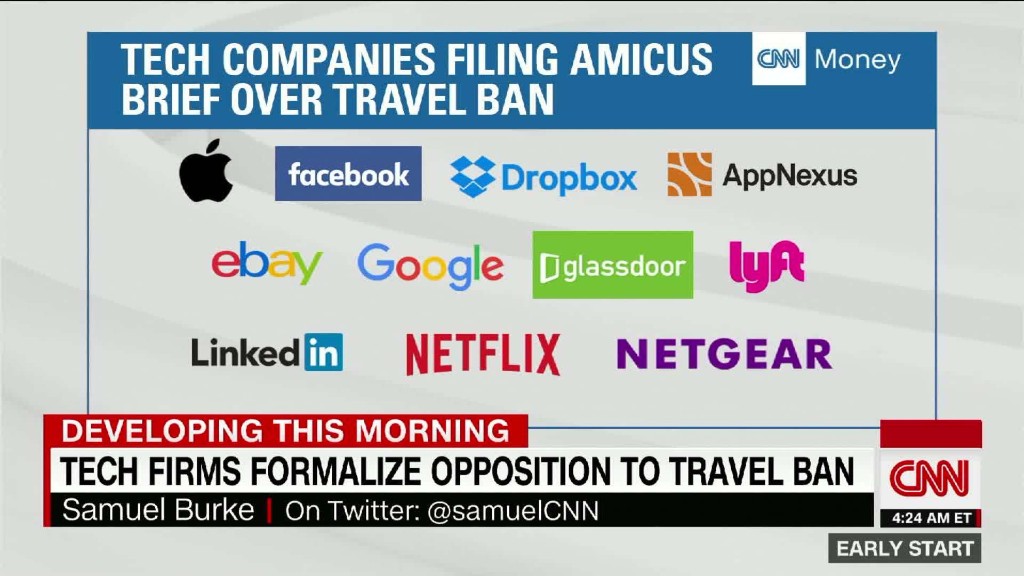
When Sam Altman mentioned his plan to speak with President Trump's supporters around the country, the response in Silicon Valley was often less than inspiring.
"It was pretty bad. 'Why do you want to? These people are so racist, they are beyond help,' " says Altman, president of Y Combinator, recalling what people said to him. "It was," he repeated, "pretty bad."
But that didn't stop him from trying it.
After the election, Altman pulled himself out of his filter bubble in San Francisco and met with Trump voters in the more conservative communities of central California as well as in Texas and his home state of Missouri. In total, he chatted with 100 voters, including about 40 people online.
He expected to meet "mostly not super educated white men" who backed Trump and might call out the tech industry for "making all this money." Or he thought they might press him about Silicon Valley's pro-immigration stance.
Instead, Altman was surprised to find a very "diverse group of people." What's more, the most "emotionally-charged" conversations were about his industry being a "super intolerant culture."
"Silicon Valley is incredibly unwelcoming to alternative points of view," one Trump supporter told him. "Your curiosity, if it is sincere, is the very rare exception to the rule."
Altman is the latest in an admittedly small but growing list of tech executives who are trying to meet with more Americans beyond the coasts. The effort comes in the months since Trump shocked the industry by winning the election.
Related: Silicon Valley's impossible balancing act with Trump
Dex Torricke-Barton quit his job as head of communications at SpaceX days after the election to do grassroots work and a "listening tour" to better understand why communities voted for Trump. His goal is to help bridge the divide between "coastal elites" and "communities left behind by globalization."
"The tech community and the U.S. heartlands both have the same problem: They think of the other as 'the other,'" says Torricke-Barton, who plans to hit the road talking to voters in March as part of his project, called Onwards.
"The vast majority of tech workers are regular folks who care about all the same things most Americans do -- having a family, raising kids, making life better for everyone in their communities," he adds.
Mark Zuckerberg, Facebook's (FB) cofounder and CEO, made it his New Year's resolution to visit and meet with people from every state in the U.S. by the end of 2017 -- but without specifically mentioning Trump as a factor.
"After a tumultuous last year, my hope for this challenge is to get out and talk to more people about how they're living, working and thinking about the future," Zuckerberg wrote in a Facebook post announcing his resolution.
So far, Zuckerberg's tour has mostly taken him through conservative states like Texas, Alabama and Mississippi. At times, these visits look like pure photo opps. Zuckerberg wrote about meeting with people in Dallas while leaving out the fact that he'd also visited a courtroom there to testify in an Oculus lawsuit.
Yet, tech leaders have been wrestling with the realization that tens of millions of Americans voted for a candidate who ran against the industry's stances on fundamental issues like immigration and globalization.
"As tech leaders we have to admit that we are hugely disconnected with our nation," Dara Khosrowshahi, Expedia's CEO, wrote in a tweet the night Trump won. "I don't like it but have to recognize this issue."
Altman was as fiercely opposed to Trump as anyone in the tech industry, once comparing the candidate to Hitler. But he admits thinking there was "something deeply wrong about how Silicon Valley was treating people who voted for Trump."
Part of the problem, he suggests, may come from ascribing Trump's most controversial views and statements to all of his voters -- and then writing those people off.
"One thing I will do is encourage more people to go do this [listening tour] because it was such a helpful experience to me," Altman says, before noting an additional incentive for techies to escape the bubble. "I would like to see my team win the next presidential election and this has given me a wider perspective on how we should go about that."

